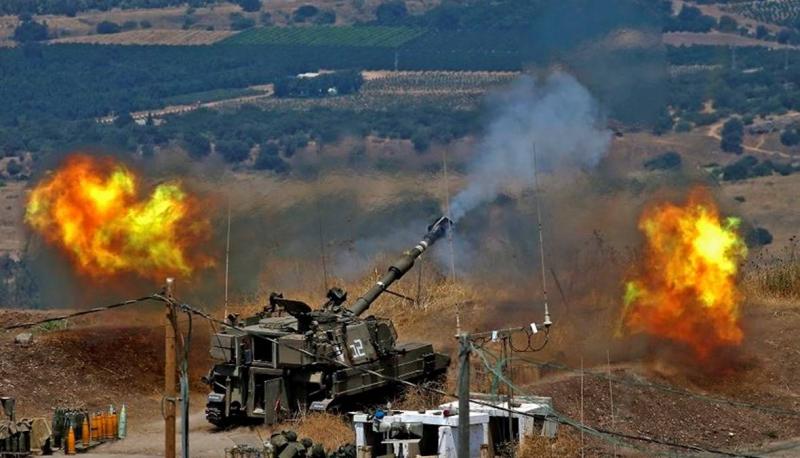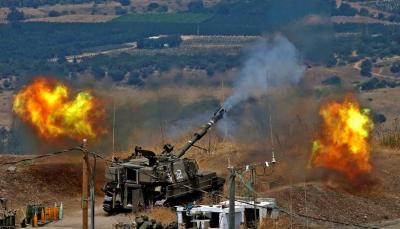Lebanese citizens are living in a state of panic and fear amid the security developments coming from the south, reflecting a clear division between those afraid to enter the unknown due to the difficult circumstances they are enduring, and others who are preparing for confrontation at any cost. Following the recent escalation, following mutual shelling between Israel and Hezbollah, the priority for many Lebanese has shifted to monitoring the news, contemplating what the situation would be like if war breaks out, and where they might flee.
These anxieties are particularly felt by residents of the south, border areas, and the southern suburbs of Beirut, which are known to be a stronghold for Hezbollah. This panic began to increase after the announcement of attacks between Israel and Hezbollah on Monday, resulting in casualties among the party's members.
Queues at gas stations have returned, as Lebanese rushed to fill their cars with gasoline despite reassurances from officials about the availability of fuel. The same rush was seen at bakeries, where customers were not satisfied with just one or two loaves; for instance, Ahmed from Marjayoun requested 15 loaves at once. When asked about the reason, he replied, “I’m going to Marjayoun, and I don’t know what will happen or if I’ll be able to return to buy bread in the coming days. Most families have left out of fear of war, and several shops have closed.”
Ahmed's fears, shared by the residents of Marjayoun, reflect the sentiments of many Lebanese. This is evident in the unusual trends observed in shopping behavior across various regions, though to varying degrees. One supermarket worker in the Metn district noted that there was an unusual increase in activity compared to the same period each month, typically busy at the beginning of the month and at the end of each week, but in recent days, there has been a significant uptick, particularly in purchasing grains and flour.
However, the greatest panic appears more evident in shops located near the southern suburbs or along the southern road. Entering a store in Aramoun, one can see nearly empty shelves, especially those designated for canned goods, grains, and flour. When a cashier asked a woman in front of a cart full of items why she was buying so much, she responded, “War is coming, and we may not be able to leave our homes.” The cashier replied, “When the missile strikes, it will either hit you and your belongings, or you will flee and leave everything behind.”
While stocking up on essentials is feasible today, the real concern lies in fears for life and children, prompting thoughts about securing a shelter for families and children should war break out. This approach often differs among citizens of the same country or region; some still cling to "faith and fate," supporting Hezbollah in any decision made and rejecting the idea of leaving their homes, expressing their resolve with sentiments like “We’d rather die in our home with dignity than leave,” as stated by Umm Hassan, recalling previous refusals to take in residents of the south.
“We stand behind the Secretary-General (of Hezbollah) in every decision he makes, and we will not allow Israel to attack us. Unfortunately, our fellow countrymen do not welcome us. In the 2006 war, we fled to the mountains and to Syria; today, going to Syria is impossible, as Syrians are displaced among us, and heading to safe areas in Lebanon does not seem feasible. So we will remain in our homes with dignity and entrust our fate to God,” she added.
The political and sectarian divide sometimes reappears in Lebanon, with voices rejecting the reception of southerners reminiscent of the 2006 war, prompting contrasting welcoming reactions, with some Lebanese sharing contact numbers on social media to offer shelter to families in their homes.
On the other hand, some could not bear the thought of experiencing war once again and began preparing to leave at any moment, as did Shadi, a father of two living in the southern suburbs of Beirut. He shared, “Tuesday night was very difficult for us. We couldn’t sleep as we awaited updates from the south. We felt that war was at our doorstep, so I asked my family to prepare bags, including winter clothes (since we don’t know how long we might be away), along with important documents, placing them at the entrance of the house to leave at any moment if necessary, after securing two places to flee to in a predominantly Christian area deemed safe in Lebanon.”
Shadi’s anxiety about the war prompted him to decide against sending his children to school while waiting to see what the situation might be in the coming hours.
This anxiety is echoed by Hassan from southern Lebanon, who expressed his reluctance to face war again. “We support the Palestinian cause, but we can no longer bear displacement and leaving our homes again,” he said. He added, “I might be able to secure a place for my family to escape to, but it might not be easy for the people from my village and relatives, plus all the suffering we will endure if war breaks out, including the inability to reach hospitals that are already struggling, compounded by the absence of healthcare services for years.”




